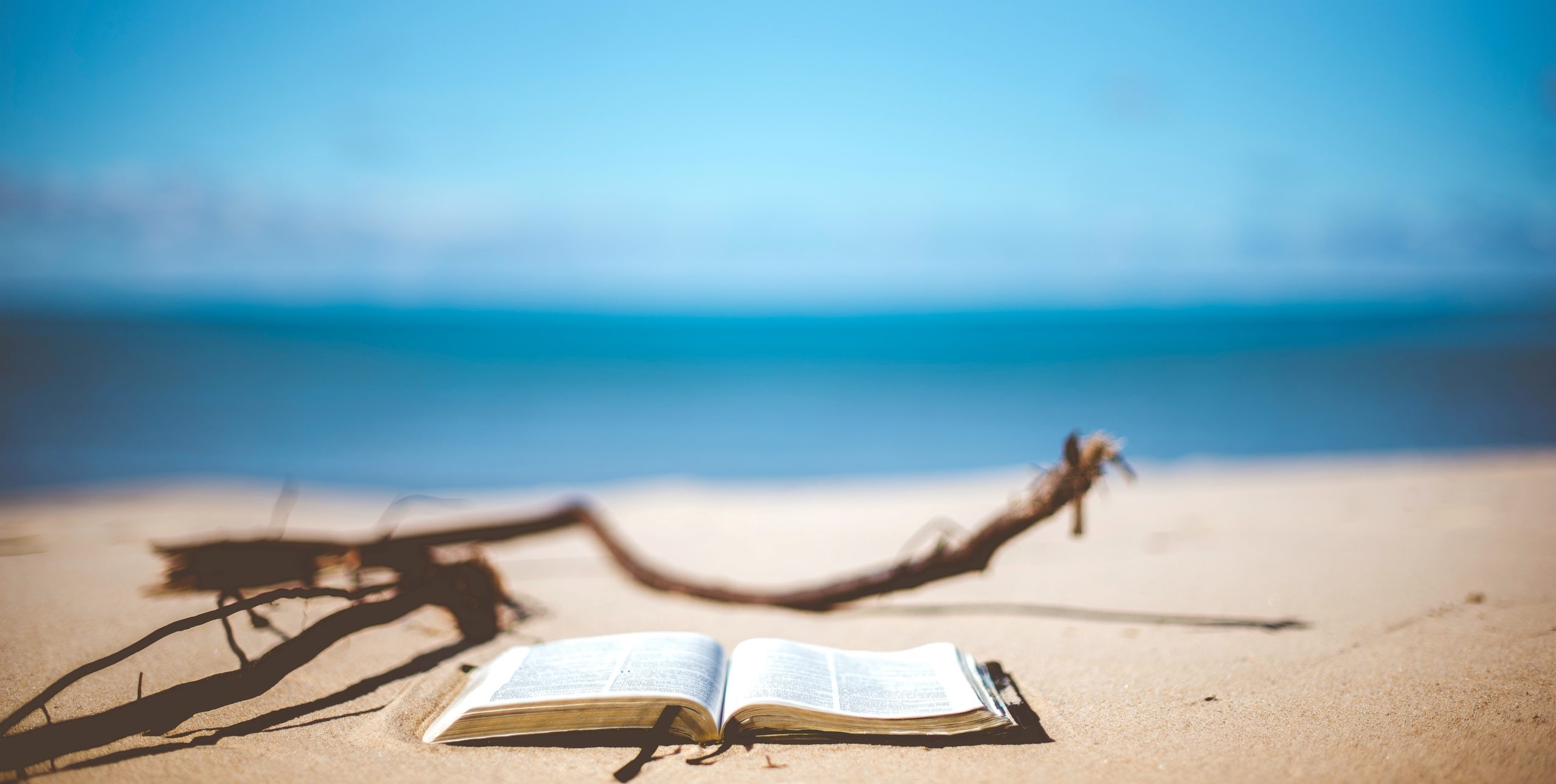
Summer Must-Reads for Ocean Lovers

Whether you’re by the ocean, the pool, or inside escaping the heat, summer is the perfect time to unwind with a good book … or a stack of them! It’s not too late to add books about the ocean to your summer reading list. Below is a list of some of our favorite books for ocean lovers:
For readers interested in exploring and celebrating the ocean, unearthing its mysteries and wonder:
The Imperiled Ocean: Human Stories from a Changing Sea by Laura Trethewey (2019). See the ocean through the eyes of people and communities all over the world as Trethewey tells their stories, illuminating human relationships with the ocean, change, and the uncertain future of our world’s last wild frontier. Trethewey is an ocean journalist and presents each narrative in ways that are both accessible and engaging.
The Outlaw Ocean: Journeys Across the Last Untamed Frontier by Ian Urbina (2019). The vastness of the world’s ocean doesn’t just create a sense of wonder and mystery but affords opportunities for all kinds of criminal behavior. Urbina tells the story of traffickers, smugglers, pirates, wreck thieves, vigilante conservationists, and more. Through his investigations and observations, Urbina discovers a shocking reality about the ocean that feels like something out of a fictitious thriller novel. Topics discussed can be sensitive, and this book may be best for older readers.
The Sea Around Us by Rachel Carson (1951). A pioneer in marine science and credited for her influential role in sparking the American environmental movement, Rachel Carson’s The Sea Around Us is a classic, award-winning book that is perfect for ocean enthusiasts everywhere. Carson weaves scientific knowledge with the joys and wonder of discovering the natural world around us. Not only does The Sea Around Us give readers a unique perspective of our blue planet, but it opens a window to a different time of ocean exploration and scientific understanding.
For readers with interest in the climate crisis:
High Tide: New from a Warming World by Mark Lynas (2004). Mark Lynas travels the world to explore the effects of climate change and their effect on people first-hand. More than stories of disaster, Lynas showcases hope and resilience through narratives that demonstrate how people around the world cope with unprecedented environmental change. Nearly 20 years later, Lynas’ writing remains truer than ever.
The No-Nonsense Guide to Climate Change: The Science, the Solutions, the Way Forward by Danny Chivers (2011). Environmental writer and creator of the Guardian’s famous online carbon calculator, Danny Chivers, gives readers a 360-degree view of climate science, politics, and a way forward. Just as the title suggests, this book is no-nonsense and Chivers’ writing is very direct and informed by experts and the scientific community.
On Fire: The (Burning) Case for a Green New Deal by Naomi Klein (2019). A champion for social change, Naomi Klein’s On Fire is a collection of her award-winning essays on climate change, natural disaster, and a bold vision for a clean energy future. Exploring issues like environmental justice, the ecological effects of fossil fuel dependence, and public attitudes about climate, Klein demonstrates a hopeful urgency to take bold action and engage in the political processes that make change possible.
Eat Like a Fish: My Adventures Farming the Ocean to Fight Climate Change by Bren Smith (2019). Former fisherman, innovative ocean farmer, and 2017 Capitol Hill Ocean Week panelist Bren Smith’s memoir outlines his lifelong relationship with the ocean and how he pioneered the development of restorative ocean farming. Smith’s journey is personal, relatable, and outlines the incredible possibilities of changing our food system, creating jobs and feeding people all over the world while mitigating global climate change and other challenges facing the ocean.
For readers with mixed interests:
The Urban Ocean: The Interaction of Cities with Water by Alan F. Blumberg and Michael S. Bruno (2018). An introduction to urban oceanography, Blumberg and Bruno tell the story of the ocean, coastlines, and how they are intertwined with all facets of human society. Exploring the relationship between the ocean and human health, recreation, the economy, and climate change, the authors explore how natural processes and social phenomena create a feedback loop and depend on one another. This text is most appropriate for advanced readers with an interest in writing that is more academic in nature.
The Death and Life of the Great Lakes by Dan Egan (2018). People often overlook the importance of North America’s Great Lakes in conversations about the ocean and the world’s water cycle, despite their holding 20 percent of the world’s supply of surface fresh water. Egan highlights the important services the five Great Lakes provide people and the challenges they face through narratives bridging history, science, personal narrative, and journalistic reporting. Written to bring attention to ecological disasters happening in real time, Egan also blends hope into this story of these epic bodies of water and ways we can fight for their future.
How to Give Up Plastic: A Guide to Changing the World, One Plastic Bottle at a Time by Will McCallum (2019). Head of Oceans for Greenpeace UK, McCallum presents the urgency and reality of the growing global plastics crisis. One of the leading campaigners in the anti-plastic movement, McCallum acknowledges how reliant our world is on single-use plastics and the challenge it will be to fight plastic waste, keep our ocean clean, and create political and social change related to how we buy and consume plastic. This timely and accessible book is a handy guide for readers interested in learning more about the plastics industry, the issue of plastics pollution, and actions individuals can take – ranging from replacing liquid body wash with bar soap to a comprehensive guide to throwing a plastic-free (but still fun!) birthday party – to exercise their consumer power and reduce their home’s impact on the natural world.
